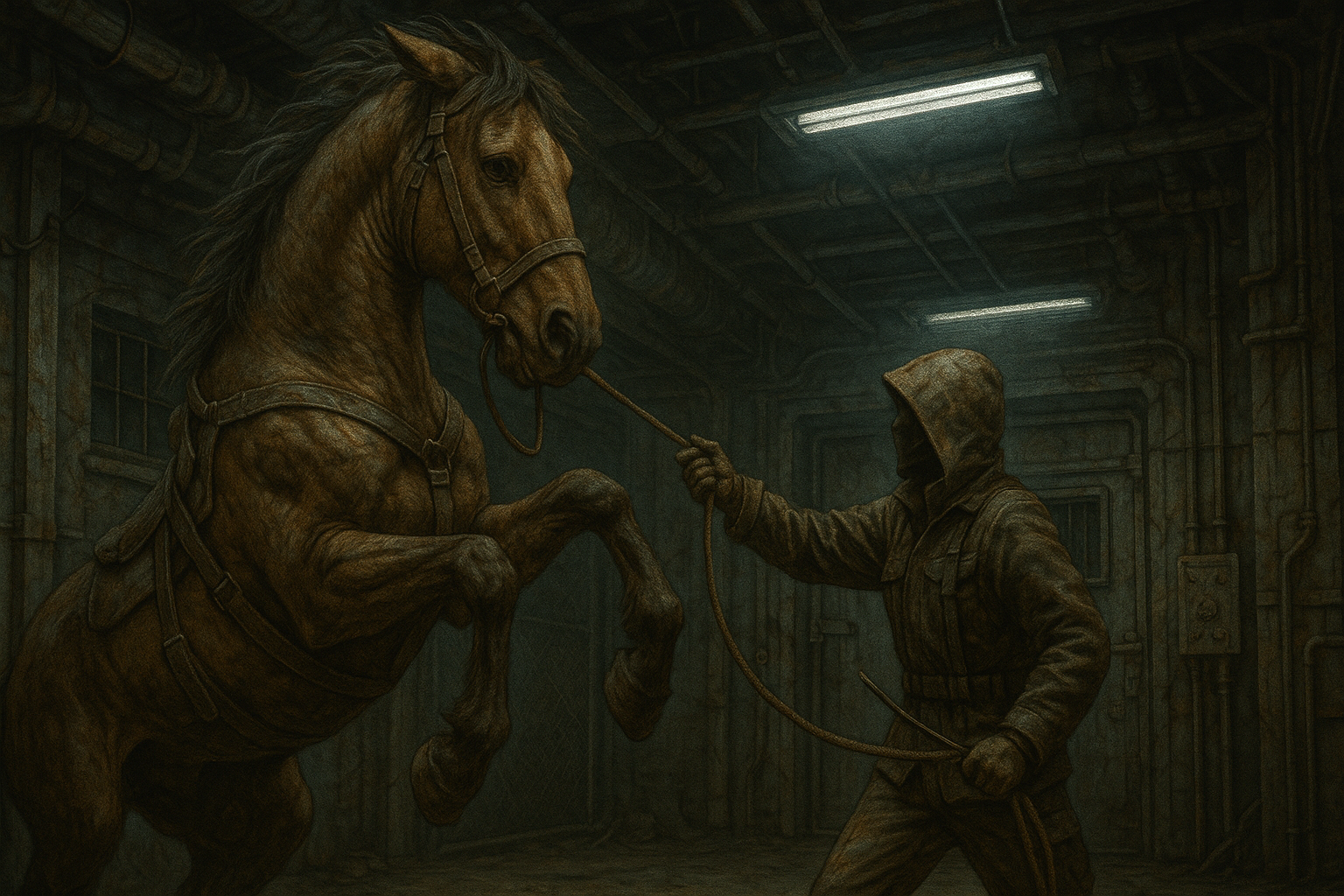Taming Animals
Taming
Generally speaking, an animal is indifferent towards any given tamer - it might also be afraid and attempting to flee, or hungry and attempting to eat the tamer, but neither of these are genuine hostility, just as freezing in place in fear is not genuine friendliness. In order to tame an animal, it must be indifferent to you - a friendly animal is already tamed, and a hostile one can't be tamed.
References below to an animal's stats are relative to an adult's stats - for example, for hit dice, the adult's hit dice are the relevant value.
Taming an animal requires a number of successful Animal Handling checks equal to its hit dice, and each check adds the animal's Charisma modifier (maximum 0) plus its Intelligence modifier (maximum 0) plus its Wisdom modifier (maximum 0) to the check result. This is reflecting the animal's difficulty with learning and trusting you as a trainer.
Example: You are trying to tame a feral mastiff. It has the following relevant stats: INT 3 (-4) WIS 12 (+1) CHA 7 (-2). You roll 1d20 and add your Animal Handling to that. Let's say you get a +5 and that you rolled a 15. That makes for a 20. Then you need to -4 and -2, giving you a final result of 14.
The DC of the check is 10 + the animal's CR (rounding down).
Example: You are still trying to tame that feral mastiff. It is CR 1/8 which rounds down to 0. This makes the CR 10 to tame the Mastiff.
The tamer has advantage on the check if they are also proficient in Nature. It takes a workweek to perform a check. If a check is failed for a third time on an animal, it becomes hostile to the tamer, and cannot ever be tamed by them. Upon 10 successes, the animal is rendered friendly towards the tamer and is considered tamed.
You must meet the needs of the animal while attempting to tame it or your checks will automatically fail.
While taming the creature, you must provide it with adequate food and water, as given for creature size in the DMG on p.111. Based on the trade goods on p.157 of the PHB:
- 1lb. of hay is worth 0.01$, assuming wheat is about the same dang thing.
- 1lb. meat is worth 0.02$, assuming a chicken weighs about that much.
- 1 gallon of pure water costs 0.10$, assuming water skins of water work like tankards of ale (half the cost is the container).
You will also need to care for the animal by keeping it somewhere safe. The larger the animal gets, the more expensive this gets. Basically, this just means you need to pay the lifestyle expense of your animal as if it were a "kennel fee". If you own a stronghold or other such piece of property which could satisfy the animal's needs, you do not need to pay this fee.
- Tiny = 0.10$/day
- Small = 0.20$/day
- Medium = 1$/day
- Large = 2$/day
- Huge = 4$/day
- I don't think that you are going to be encountering animals larger than this....
NOTE: Once you have tamed an animal, it becomes an animal companion.




Comments